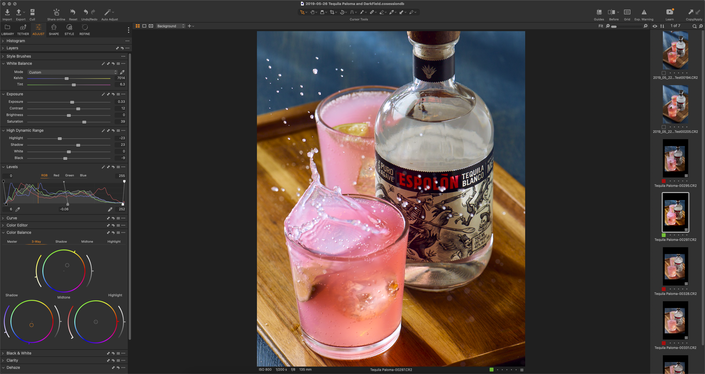
About the Course
With a modest amount of basic equipment, you can develop your own color negative film at home and then use your digital camera and software to scan and reverse the negative.
It's a fun and fulfilling process!
Let me show you how it's done!
Curriculum
DETAILS
I hope that these five videos will give you everything you need to develop your own color negative film at home using Cinestill C41 chemistry - and then scanning film using your own digital camera!
Supplies List for Developing:
- Exposed 35mm or 120 film
- Dark film-changing tent or a dark room
- Patterson 3-Reel tank
- Patterson reels (3 for 35mm or 2 for 120)
- Cinestill C-41 liquid chemistry kit (develops appx 40 rolls)
- (2-3) Graduated pitchers
- (3) accordion bottles
- (1) small tub from Ace Hardware or other
- (1) Sous vide from Amazon or other retailer
- (1) food grade temperature gauge (the turkey stab-in kind)
- (1) small ladle
- (1) medium rag
- (1) small rag
- (1) gallon of distilled water
- (1) Pack of 10 little film-hanging clips
Supplies List for Scanning:
- Copy stand that can hold your digital camera
- Macro lens, or 50mm lens and Kenko extension tube (these are ideal, but with wider lenses you will just have to crop in more - longer lenses may not let you focus close enough - a 50 with a Kenko tube is an excellent way to get “macro” without the cost of a macro lens.
- Cinestill “Skier” or other light box
- Your developed film in archival sleeves for safe-keeping
- SD or CF card (if not tethering to software)
- Tether cable (if tethering to software)
- Either Capture One Pro and Adobe Photoshop – or Adobe Lightroom and Adobe Photoshop – or just one of these if using only SD/CF card
- Compressed canned air
- Optional Lightroom Plug-in of “Negative Lab Pro” but this work can be done in Photoshop without the Plug-in, too.
- Optional but helpful - Kinetronics Ministat film brush
No prerequisities for developing film are needed.
"Scanning" Prerequisites:
Basic functional knowledge of Capture One Pro or Lightroom - as well as Photoshop.
*Tethering to either Capture One Pro or Lightroom is HIGHLY recommended for the most control and the very best scan. But, if you can accurately focus on the film, you can shoot to card, import to software or open files with Photoshop and do the reversal from there.
**This course does not implement Gimp or Affinity software.
Example Featured Products
Showcase other available courses, bundles, and coaching products you’re selling with the Featured Products block to provide alternatives to visitors who may not be interested in this specific product.



